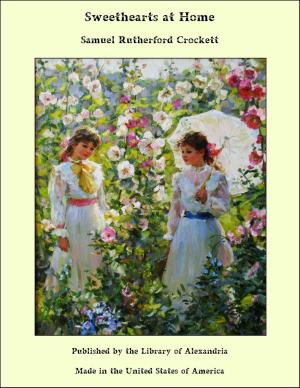Gaut Gurley: The Trappers of Umbagog A Tale of Border Life
Nonfiction, Religion & Spirituality, New Age, History, Fiction & Literature| Author: | Daniel Pierce Thompson | ISBN: | 9781465618139 |
| Publisher: | Library of Alexandria | Publication: | March 8, 2015 |
| Imprint: | Language: | English |
| Author: | Daniel Pierce Thompson |
| ISBN: | 9781465618139 |
| Publisher: | Library of Alexandria |
| Publication: | March 8, 2015 |
| Imprint: | |
| Language: | English |
God made the country and man made the town. So wrote the charming Cowper, giving us to understand, by the drift of the context, that he intended the remark as having a moral as well as a physical application; since, as he there intimates, in "gain-devoted cities," whither naturally flow "the dregs and feculence of every land," and where "foul example in most minds begets its likeness," the vices will ever find their favorite haunts; while the virtues, on the contrary, will always most abound in the country. So far as regards the virtues, if we are to take them untested, this is doubtless true. And so far, also, as regards the mere vices, or actual transgressions of morality, we need, perhaps, to have no hesitation in yielding our assent to the position of the poet. But, if he intends to include in the category those flagrant crimes which stand first in the gradation of human offences, we must be permitted to dissent from that part of the view; and not only dissent, but claim that truth will generally require the very reversal of the picture, for of such crimes we believe it will be found, on examination, that the country ever furnishes the greatest proportion. In cities, the frequent intercourse of men with their fellow-men, the constant interchange of the ordinary civilities of life, and the thousand amusements and calls on their attention that are daily occurring, have almost necessarily a tendency to soften or turn away the edge of malice and hatred, to divert the mind from the dark workings of revenge, and prevent it from settling into any of those fatal purposes which result in the wilful destruction of life, or some other gross outrage on humanity. But in the country, where, it will be remembered, the first blood ever spilled by the hand of a murderer cried up to Heaven from the ground, and where the meliorating circumstances we have named as incident to congregated life are almost wholly wanting, man is left to brood in solitude over his real or fancied wrongs, till all the fierce and stormy passions of his nature become aroused, and hurry him unchecked along to the fatal outbreak. In the city, the strong and bad passions of hate, envy, jealousy, and revenge, softened in action, as we have said, on finding a readier vent in some of the conditions of urban society, generally prove comparatively harmless. In the country, finding no such softening influences, and no such vent, and left to their own workings, they often become dangerously concentrated, and, growing more and more intensified as their self-fed fires are permitted to burn on, at length burst through every barrier of restraint, and set all law and reason alike at defiance.
God made the country and man made the town. So wrote the charming Cowper, giving us to understand, by the drift of the context, that he intended the remark as having a moral as well as a physical application; since, as he there intimates, in "gain-devoted cities," whither naturally flow "the dregs and feculence of every land," and where "foul example in most minds begets its likeness," the vices will ever find their favorite haunts; while the virtues, on the contrary, will always most abound in the country. So far as regards the virtues, if we are to take them untested, this is doubtless true. And so far, also, as regards the mere vices, or actual transgressions of morality, we need, perhaps, to have no hesitation in yielding our assent to the position of the poet. But, if he intends to include in the category those flagrant crimes which stand first in the gradation of human offences, we must be permitted to dissent from that part of the view; and not only dissent, but claim that truth will generally require the very reversal of the picture, for of such crimes we believe it will be found, on examination, that the country ever furnishes the greatest proportion. In cities, the frequent intercourse of men with their fellow-men, the constant interchange of the ordinary civilities of life, and the thousand amusements and calls on their attention that are daily occurring, have almost necessarily a tendency to soften or turn away the edge of malice and hatred, to divert the mind from the dark workings of revenge, and prevent it from settling into any of those fatal purposes which result in the wilful destruction of life, or some other gross outrage on humanity. But in the country, where, it will be remembered, the first blood ever spilled by the hand of a murderer cried up to Heaven from the ground, and where the meliorating circumstances we have named as incident to congregated life are almost wholly wanting, man is left to brood in solitude over his real or fancied wrongs, till all the fierce and stormy passions of his nature become aroused, and hurry him unchecked along to the fatal outbreak. In the city, the strong and bad passions of hate, envy, jealousy, and revenge, softened in action, as we have said, on finding a readier vent in some of the conditions of urban society, generally prove comparatively harmless. In the country, finding no such softening influences, and no such vent, and left to their own workings, they often become dangerously concentrated, and, growing more and more intensified as their self-fed fires are permitted to burn on, at length burst through every barrier of restraint, and set all law and reason alike at defiance.















